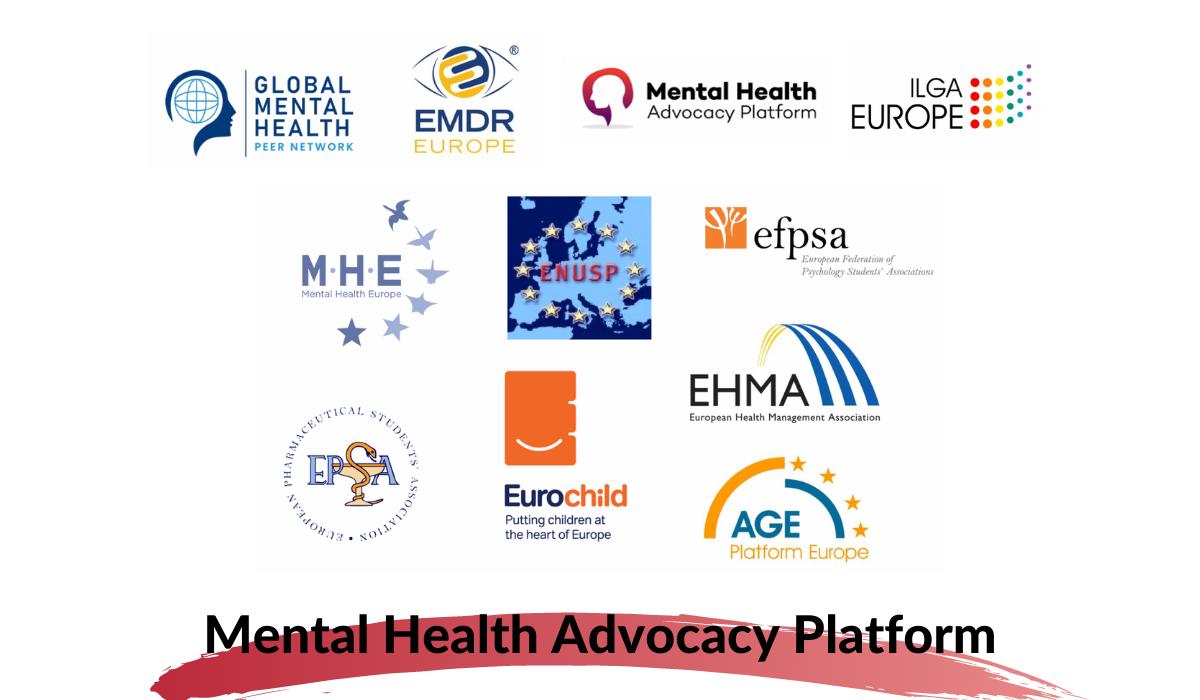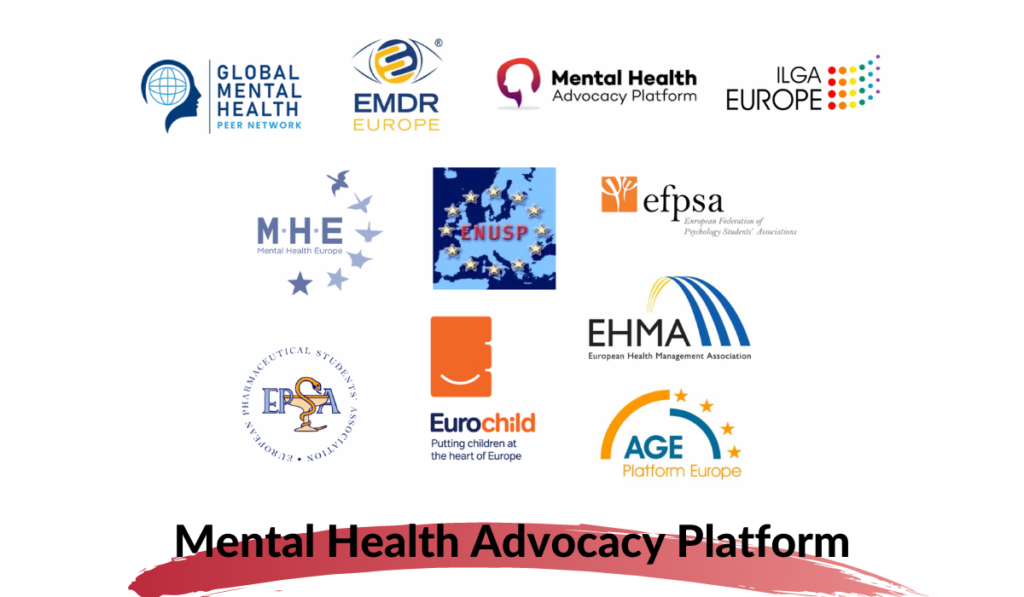The time is now to create an intersectional long-term Mental Health Strategy

The Mental Health Advocacy Platform released a statement calling for a European Strategy for Mental Health that takes an intersectional approach and can meet everyone’s diverse needs.

A comprehensive European Mental Health Strategy is essential to tackle inequalities in mental health care, support prevention and early intervention services. Moreover, to promote the wellbeing of millions of people in the EU, protect the rights of people with lived experience of mental health problems and raise awareness to end mental health stigma and discrimination.
In general, women and girls, children, ethnic minorities, people with disabilities, LGBTI, older persons, undocumented people, young people and those with difficult socio-economic realities, are just a few examples of groups that are at risk of being disproportionately impacted by mental ill-health. Whilst certain groups are more likely to bear an unequal burden, they are also less likely to receive tailored mental health support. To that end, a human-rights based European Strategy on Mental Health that addresses the socio-economic determinants of mental health is imperative to achieve an equitable approach to mental healthcare.
In December 2019, the Council Conclusions on the Economy of Well-being invited the European Commission to “propose a Mental Health Strategy for the Union, taking into account the cross-sectoral impacts of different policies on mental health.” Considering the increased shift towards the recovery phase of the pandemic and taking these reflections into account, the Mental Health Advocacy Platform is collectively calling on the European Commission to develop and adopt a comprehensive long-term Mental Health Strategy, which:
- Addresses the socio-economic determinants of mental health, with particular attention to those who face multiple and intersecting forms of discrimination, including on the basis of ethnicity, religion, sexual orientation and gender identity, migration status, age or disability. This approach must take into account the underlying structural problems of mental healthcare systems;
- Underlines the need for more meaningful cooperation with civil society and the communities they represent, experts and particularly persons with lived experience. Holistic approaches to mental health support and services should be developed alongside affected communities, including above all with the meaningful involvement of people with psychosocial disabilities, through consultations and in a non-tokenistic manner;
- Promotes non-coercive, rights-based and person-centred mental health services and care, deinstitutionalisation and the respect for legal capacity as required of the European Union as a State Party to the UN Convention on the Rights of Persons with Disabilities. These services should take a psychosocial approach, including by encouraging user-led services and initiatives, such as peer support and WHO Quality Rights training modules for professionals;
Read the full set of recommendations below.
Stay connected
Get our latest news, personal stories, research articles, and job opportunities.

